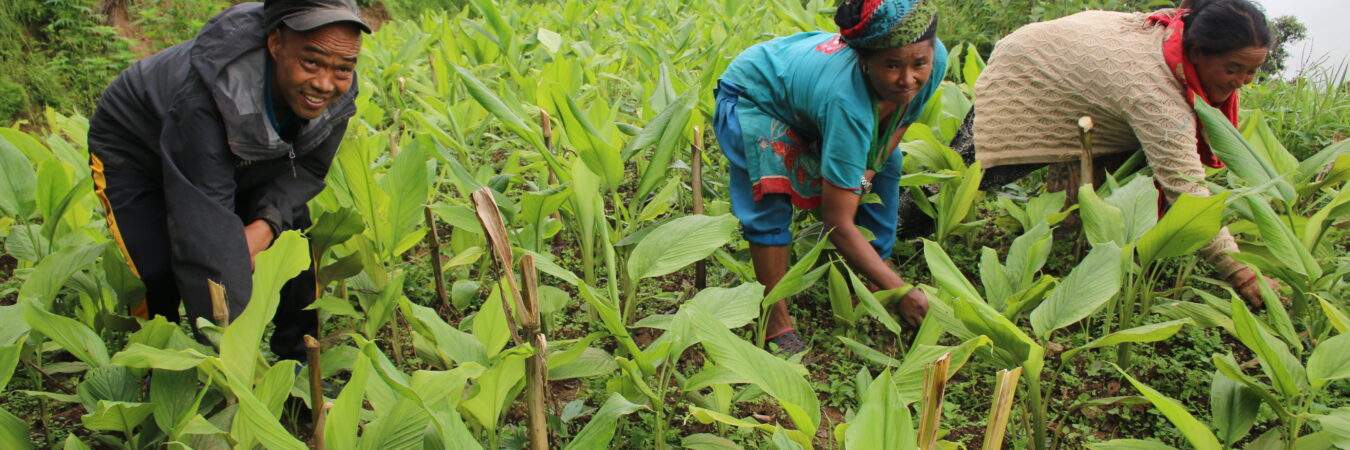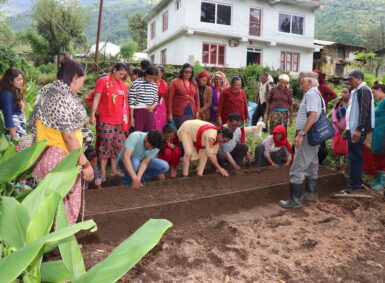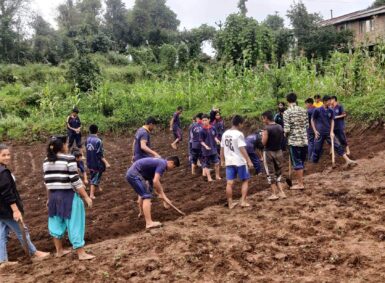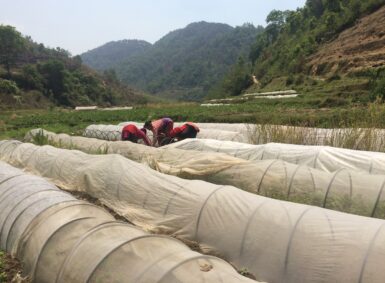
Public-Private-Community-Alliance for Sustainable Natural Products-based Enterprises and Local Economic Development, Phase II
- Starting Date:
- March 7, 2024
- Ending Date:
- March 31, 2027
- Location:
- Dolakha district
- Donor(s):
- Tides Foundation/ Estee Lauder Companies Corporate Fund/ Aveda Corporation
This program ‘Public-Private-Community-Alliance for Sustainable Natural Products-based Enterprises and Local Economic Development (PPCA), Phase II’ is the continuation of the previously implemented ‘Public-Private-Community-Alliance for Sustainable Natural Products-based Enterprises and Local Economic Development (PPCA), Phase I (2018-2021)’ program. The previously implemented program showcased the unique locally-led inclusive governance and coordination mechanism at the municipality level, and focused on diversifying revenue streams for local communities through enterprise-oriented farm and forest management, coupled with value chain development.
The innovative nature of PPCA alliance, along with interventions aimed at diversifying revenues at the community level through sustainable management and utilization of natural resources, received strong recognition from various local stakeholders. These include Jiri municipality, farmers and forest user groups, cooperatives, and local enterprises. Furthermore, other municipalities also expressed keen interest in implementing the PPCA model in their respective jurisdictions. At the national and international level, development partners and industry associations also acknowledged the PPCA as an innovation for locally-led development with inclusive governance and as an initiative that address environmental degradation with some emphasis on research-to-action.
In this backdrop, ANSAB collaborating closely with the Aveda team, engaged to follow up on understanding the dynamics of and advancing the PPCA program. The lessons from the past and the best practices that have been developed over the years were carefully considered, and PPCA Phase II is being implemented since March 2024.
OBJECTIVE OF THE PROJECT
Building on the previous work and in alignment with current needs and expectations of indigenous people and local communities (IPLC), municipality and other key stakeholders, this project aims to contribute to locally led biodiversity conservation, enterprise development and climate change adaptation while generating sustainable income and employment opportunities for hundreds of small-holder farmers and wild-plant harvesters. For this, the project will support them in their endeavors to inclusive governance, sustainable management of forest and farm resources, value addition and marketing of farm and forest products, resilient livelihoods, and promoting social justice and harmony.
More specifically, the project will strive to achieve the following outcomes:
- Confidence of key stakeholders improved, both at local and national level on sustainable farming and wild-plant harvesting as well as on inclusive governance mechanism through PPCA;
- Capacity of IPLCs strengthened on sustainable farming, wild-plant harvesting, enterprise development and marketing, and self-awareness and overall wellbeing; and
- Some best practices documented generating practical actionable information.
EXPECTED RESULTS
With the implementation of this project, the following results are expected:
- 1,500 farming households directly benefitted from increased knowledge and skills on eco-system-based farming and provision of climate resilient agriculture inputs and technologies;
- At least 500 ha of agriculture land are managed by local communities following organic agriculture practices;
- 8 TEVT (Technical Education and Vocational Training) students receiving on-the-job training, equipping them with practical experience on eco-system-based farming and value chain;
- At least 3 marketing outlets developed in Kathmandu and Jiri, facilitating collection and sale of local agriculture products from Jiri;
- 1 guideline for mountain specific organic farming practices and 1 documentation on PPCA developed.




![Nepal center of excellence in rural development: Designing agribusiness model for ecosystem-based commercial agriculture [Phase I, Year II]](https://ansab.org.np/wp-content/uploads/2024/04/NeCoE-Phase-I-Year-II-project-cover-pic.jpg-385x283.jpg)